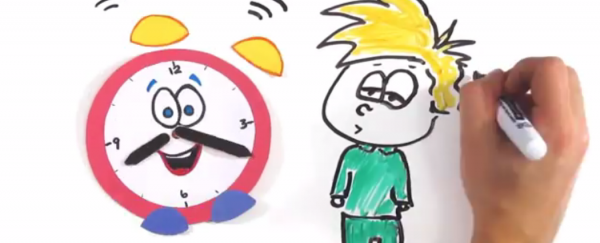There's nothing in the world quite like the feeling of waking up and allowing yourself to drift back to sleep, if only for a moment. It's something our snooze buttons have facilitated for decades, but is this actually good for us, or yet another little addiction we could do without? Are those few extra minutes actually helping us stay rested? The episode of AsapSCIENCE above is on the case, and let's just say… it's time to throw that snooze button-enabled alarm clock out the window like you've been threatening.
I know it's hard to believe, but human beings have all the equipment to actually just get up out of bed as soon as we wake. Just as we have a repertoire of chemical mechanisms to put us to sleep, our bodies work really hard to wake us up. About an hour before we wake naturally, our body temperate rises, our sleep becomes lighter, and we start to receive energy thanks to the release of the hormones dopamine and cortisol.
But the problem with alarm clocks, says AsapSCIENCE, is that they completely ignore all of this and disrupt our natural sleep cycle, day after day. The effects are even more severe when you don't have a regular sleep schedule, because your body doesn't have the chance to adjust to when it thinks you're going to be waking up. In this case, you're more likely to wake up in the middle of a deep sleep and experience 'sleep inertia' - that groggy and dead-tired feeling that makes you wonder how we humans ever get anything done.
So surely the solution would be to hit that snooze button and give yourself a fighting chance, even if it's just a few extra minutes of sleep? Well, as the episode above explains, falling back asleep could actually reset your sleep cycle, and you could end up in even deeper sleep stages when that alarm inevitably goes off again. "So instead of your body prepping to wake up, it's going in the opposite direction," says AsapSCIENCE.
What's the solution then, when it's hard enough to get the right amount of sleep, let alone figuring out how to wake up in a way our body appreciates? Watch the episode of AsapSCIENCE above to get their tips for a great sleep.
